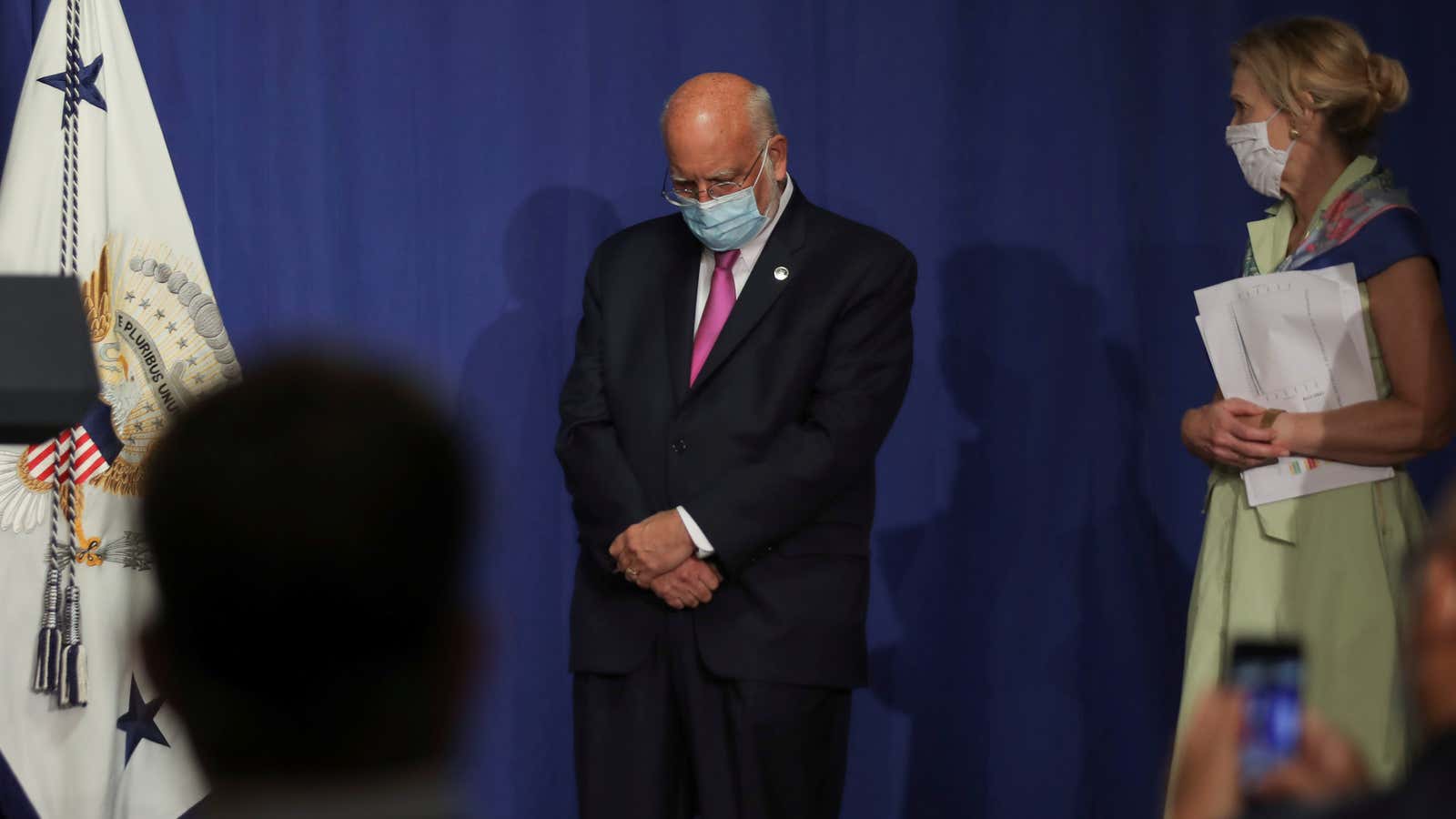Covid-19 hospitalization data is essential to study the epidemic and work on response strategy. It may seem obvious yet the US government removed it from public access, making it inaccessible for many epidemiologists.
On July 10, hospitals were requested to submit their data not to the Centers for Disease Control and Prevention (CDC), but through a portal managed by Teletracking Technologies, a private company, which was awarded a $10 million contract through a non-competitive bid to manage Covid-19 tracking.
By July 15, the data was gone from CDC’s public facing site. Then yesterday, after a large outcry from public health experts and health officials, it appeared again, albeit only updated through July 14. There is no clear indication of when the full data will be accessible again, and any delay in making it public can compromise the efforts of independent trackers trying to measure the extent of the epidemic.
“For other databases, a FOIA requests that takes a couple of weeks or a month is OK, but for Covid that’s not OK—we need to know that right now,” Eric Feigl-Ding, an epidemiologist and senior fellow at the Federation of American Scientists, told Quartz, referring to the Freedom of Information Act.
Yet something else is also true: Though the CDC has the ability to demand harmonized data from hospitals, scientists agree its coronavirus data collection was terrible. Since early in the pandemic, lags in collection, a lack of reporting from private labs, and other limitations made the information unreliable.
Independent data collection initiatives such as the the Covid Tracking Project, spearheaded by The Atlantic, or covidexitstrategy.org have stepped up to fill the government’s gaps in information, and the more CDC data becomes less reliably accessible, the more they take the place of official reporting.
In a way, this is the story of US public health data as a whole: The lack of centralized data collection is a challenge not just when it comes to politically charged emergencies like coronavirus, but for any sort of indicator of disease or treatment—from the spread of the flu to hospitalizations. Countries with coordinated, centralized healthcare databases can reliably track the health of their citizens in a way the US isn’t capable of. “We are not the UK, or Sweden,” Feigl-Ding said.
But the situation is also in line with other political public health crises. Much like gun violence, police brutality, and racially or hate-motivated crimes, the coronavirus pandemic has now joined the list of US tragedies the government won’t track or study, leaving the job to voluntarily assembled do-gooders—often news organizations, or non-profits—who try to make up for the institutional void.
